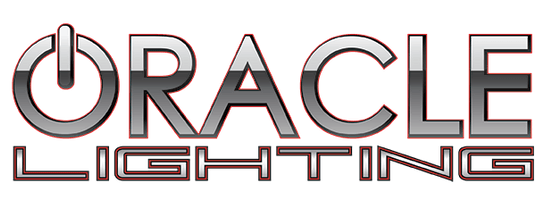
Understanding IP Ratings and Their Importance in Automotive Lighting
When shopping for automotive lighting, you may have encountered terms like "IP67-rated" or "IP68-rated." These codes are more than just technical jargon—they represent a critical standard for durability and performance. In this blog, we’ll dive into what IP ratings mean, why they matter, and how they can guide your decision when choosing lighting products, especially for rugged applications like off-roading.

What Are IP Ratings?
IP ratings, short for "Ingress Protection" ratings, are internationally recognized codes that indicate how well a device is protected against solid particles (like dust) and liquids (like water). These ratings are defined by the International Electrotechnical Commission (IEC) and are commonly displayed as "IP" followed by two numbers.
Breaking Down the Code:
- The First Number: Indicates protection against solid objects, like dust or dirt. Ratings range from 0 (no protection) to 6 (complete protection).
- The Second Number: Indicates protection against liquids, like water. Ratings range from 0 (no protection) to 9K (protection against high-pressure, high-temperature water).
For example, a light with an IP67 rating is completely dust-tight (6) and can withstand immersion in water up to 1 meter deep for 30 minutes (7).
Why Do IP Ratings Matter for Automotive Lighting?
When you're driving through unpredictable conditions, your lights need to be reliable. Here’s how IP ratings ensure your lighting stands up to the challenges:
- Protection Against Dust and Debris:
Off-road environments are filled with dust, sand, and mud, all of which can wreak havoc on electrical components. A high dust-resistance rating (like 5 or 6) ensures that your lighting system remains operational no matter how dirty the trail gets. - Water Resistance for All Conditions:
From heavy rainstorms to river crossings, automotive lights often face exposure to water. A light with an IP67 or IP68 rating offers peace of mind, whether you're tackling a waterlogged trail or dealing with a sudden downpour. - Durability in Extreme Environments:
IP-rated lights are engineered to withstand harsh conditions, making them ideal for outdoor enthusiasts who demand reliability during their adventures.
Common IP Ratings for Automotive Lighting
- IP65: Resistant to water jets and dust. Suitable for general use but less robust than higher ratings.
- IP67: Dust-tight and can handle temporary water immersion. Perfect for most off-road adventures.
- IP68: Dust-tight and capable of withstanding continuous submersion. Ideal for extreme environments.
At ORACLE Lighting, we understand the importance of durability and performance in automotive lighting. That’s why many of our products, including LED light bars, headlights, and fog lights, meet or exceed industry-standard IP ratings. Our rigorous testing ensures that you’re equipped with lights capable of handling the toughest conditions.
How to Choose the Right IP-Rated Light for Your Needs
When selecting lights, consider your typical driving conditions:
- For daily driving, an IP65-rated light may suffice.
- For off-road adventures, IP67 or IP68-rated lights provide superior protection.
- If you frequently encounter extreme conditions, opt for IP68 or higher to ensure maximum durability.
IP ratings are a vital consideration when choosing automotive lighting, especially for those who demand reliability in challenging environments. By understanding what these ratings mean, you can make an informed decision and ensure your lights perform when you need them most.
Explore ORACLE Lighting’s range of IP-rated products and equip your vehicle with lighting solutions designed to last.

